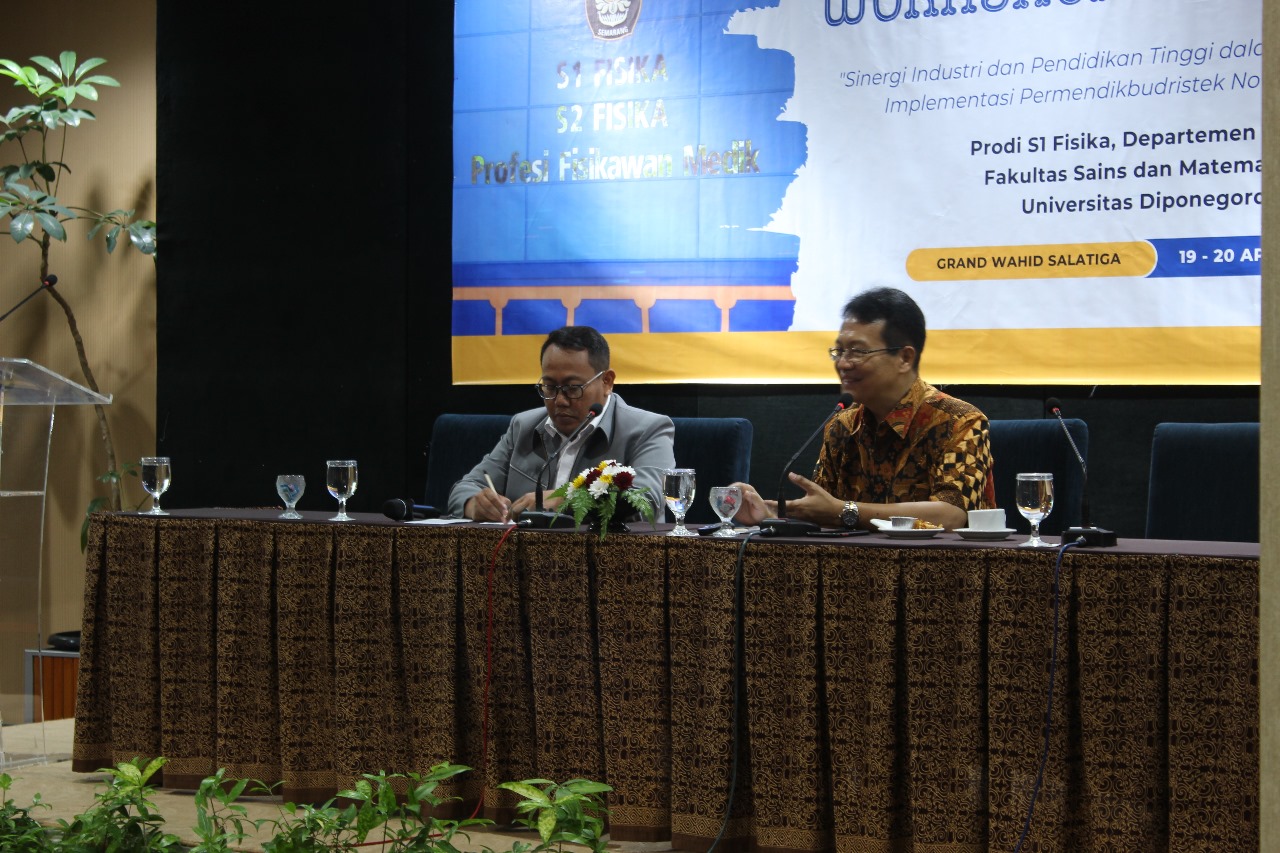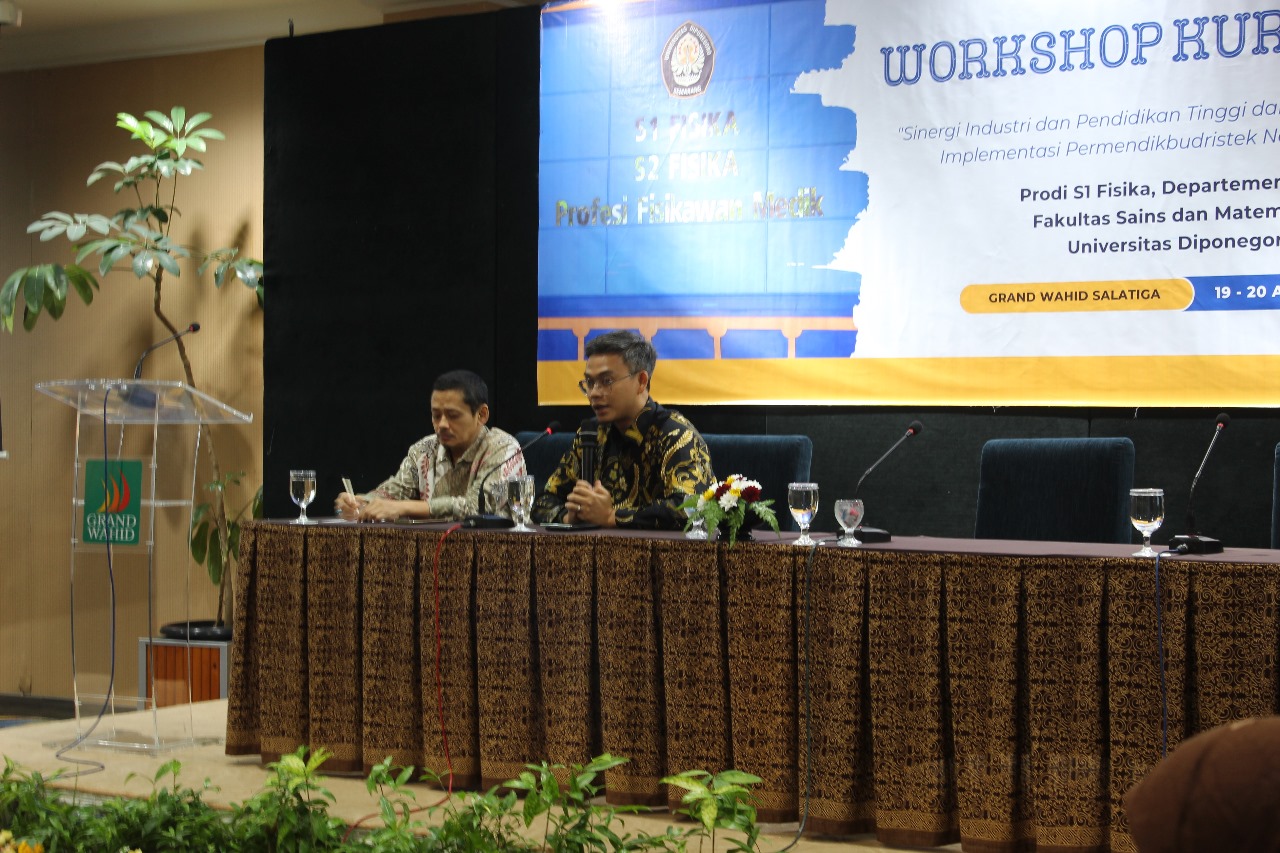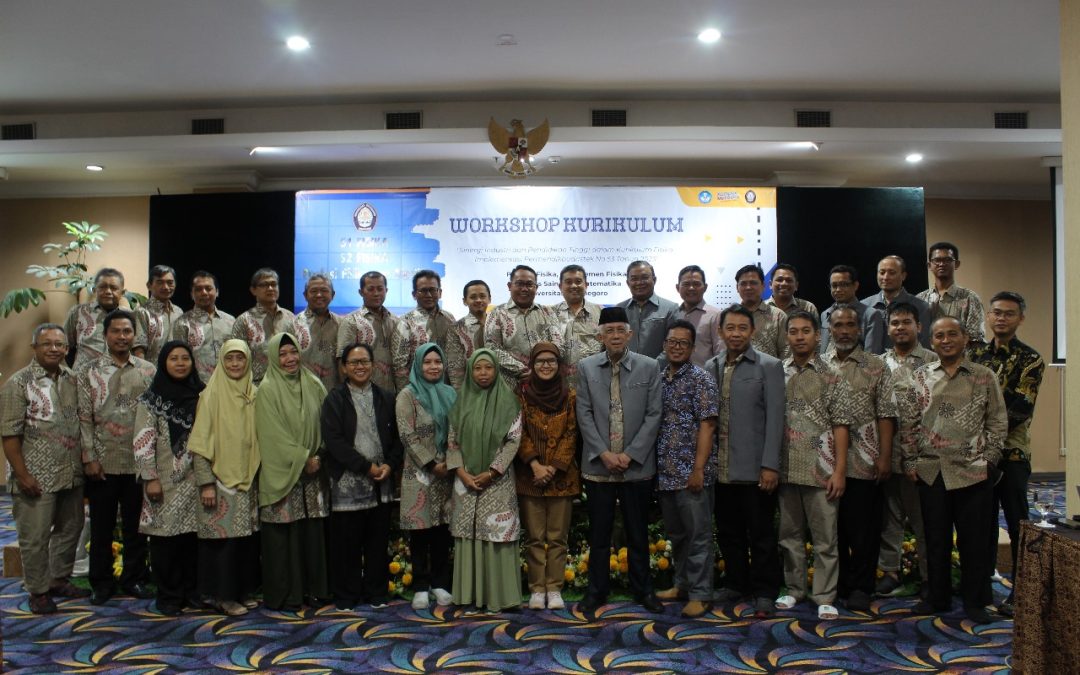[April 19-20, 2024] The Physics Department at Diponegoro University (Undip) hosted a workshop on the physics curriculum at the Grand Wahid Hotel in Salatiga. The event was attended by faculty, educators, and physics alumni from various cohorts. The objective was to synchronize and update the Undip physics curriculum to align with the latest developments and the needs of industry and government sectors.
The first day of the workshop included sessions where feedback and suggestions were gathered from Undip alumni who are now employed in various government agencies and modern industries. These discussions provided real perspectives on the current curriculum’s application in the workplace and alumni expectations for a more adaptive and relevant curriculum change. One alumnus provided key advice emphasizing courses that boost motivation for new physics students and enhance their confidence that graduating in physics adds value, including being perceived as more diligent, more meticulous, better at data processing, more adaptable, and more open-minded compared to graduates from other programs. This is certainly an advantage possessed by graduates of physics from Undip.
The second day featured Prof. Pepeng from the Bandung Institute of Technology (ITB), who discussed the Outcome-Based Education (OBE) curriculum. Prof. Pepeng highlighted the importance of education focused on measurable learning outcomes that are relevant to the current needs of industry and government. This session was extremely beneficial for enriching the faculty and staff at Undip in designing a curriculum that is not only informative but also transformational, preparing students for future global challenges.
There are high hopes for this workshop. By directly hearing the advice and input from alumni and educational experts from ITB, the Physics Department at Undip aims to develop a more dynamic, responsive curriculum that prepares students to be future leaders in science and technology. Furthermore, this workshop is expected to strengthen the network between the university and industry and government agencies, thereby increasing opportunities for collaboration and research that can support the teaching process and practical application of physics knowledge.



